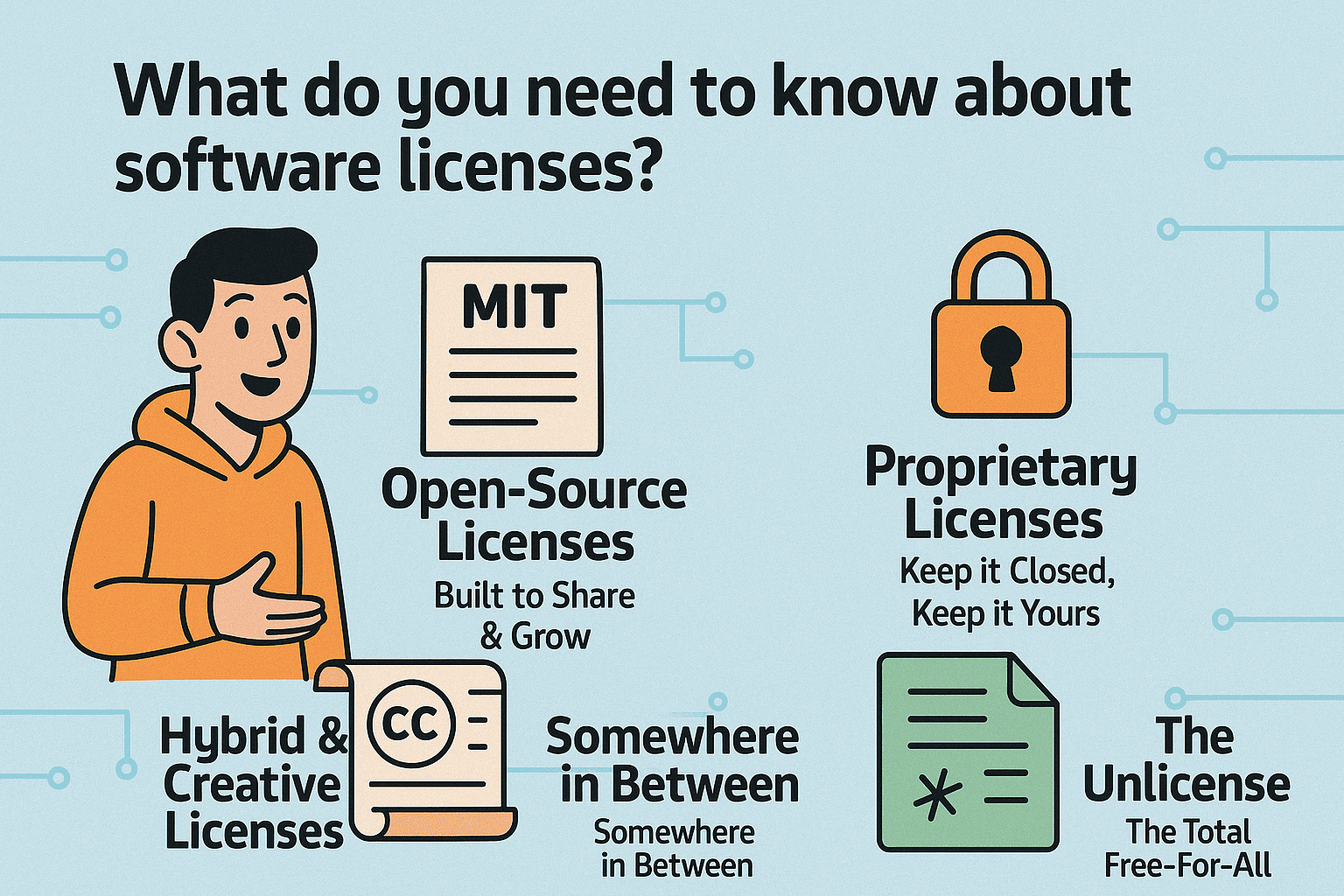Whether you’re coding from a café in Kuwait City, leading a development team in Sydney, or launching a SaaS product in Riyadh, there is one thing that you need to keep in mind: Software licenses matter!
In today’s tech-driven world, understanding how to legally protect, share or monetize your code can be the difference between building something sustainable and walking into legal chaos.
What Exactly is a Software License?
A software license is a rulebook that tells people how they can or can’t use the code you write. Can they copy it? Can they build on it? Can they sell it?
Some licenses are open and collaborative while others are locked down and protective. They key is knowing which one fits your goals and growth model.
Open-Source Licenses: Built to Share & Grow
Open-source licenses allow others to access, use and modify your code, usually for free, but with varying levels of freedom and responsibility. These licenses fuel innovation and have helped tech communities thrive all over the world.
MIT License: The No-Stree Option
“Use it, change it, sell it. Just don’t sue me if it breaks!”
MIT is one of the most permissive open-source licenses. It’s idea for developers who want their code to spread quickly and freely, with minimal conditions. Just keep the original license and credit intact.
From startups in Europe to development communities in the MENA region, MIT is a go-to easy for sharing and low-friction collaboration.
GPL: The Defender of Openness
“You can build on my work, but your version must stay open too!”
The GNU General Public License (GPL) is about keeping code and the community open. If someone modifies and redistributes your GPL-licensed code, they must also release their changes under the same license.
This is perfect for developers who want to ensure their collaborations stay in the open-source ecosystem.
Apache License: The Business-Savvy one
“Use it freely but do not bring patents into it!”
Apache 2.0 is a favorite among tech companies because it’s flexible like MIT, but also includes patent protection. It ensures that contributors can’t later sue others over patent claims tied to their contributions.
The Apache License is great for commercial products and collaborative projects with global ambitions.
LGPL: The Compromise
“You can use my library, just do not change it without sharing!”
The Lesser GPL (LGPL) is mostly used for libraries. It lets you use open-source components in proprietary applications as long as you don’t modify the LGPL-covered parts (or if you do, you share those changes).
It’s a solid middle ground between open collaboration and corporate control.
BSD License: The Minimalist
“Do whatever you want, just mention me!”
The Berkeley Software Distribution (BSD) license is simple and permissive. Similar to MIT, it allows nearly unrestricted use of code, requiring only that you maintain attribution to the original developer.
The BSD License is ideal for developers who care more about adoption than control.
--
Proprietary Licenses: Keep it Closed, Keep it Yours
Not everything is meant to be open. Proprietary licenses are designed for those who want tighter control over how their software is used, sold or distributed. From SaaS to enterprise systems, these are the business-first choices.
EULA: The “Agree Without Reading” License
The End User License Agreement (EULA) license is the standard for most consumer and enterprise software. It spells out what users can and can’t do but if we’re being honest, most people scroll and just click “Agree”!
If you’re distributing software commercially, a clear EULA protects your business from misuse and liability.
Perpetual License: Buy Once, Own Forever
This is the old-school model of a one-time payment for lifetime access. While it’s less common today, it’s still used in industries where long-term access matters more than frequent updates and is used for thing such as manufacturing software, architecture tools or medical platforms.
Subscription License: The Modern Standard
This is how most SaaS platforms operate. Users pay monthly or yearly for access, support and updates. This is a flexible, scalable and budget-friendly model for customers while it also creates recurring revenue for businesses.
Floating License: Shared Access for Teams
Floating licenses are perfect for organizations with large teams. Instead of assigning licenses per user, a fixed number can be shared across the team but only a limited number of people can use them at once.
This is popular in enterprise IT, design software and engineering tools.
Hybrid & Creative Licenses: Somewhere in Between
Not every project is black-and-white. These licenses live in the grey zone, offering flexibility for collaborative or creative work.
MPL: The Diplomat
“Keep your code closed but if you touch my files, you open them”
The Mozilla Public License (MPL) allows proprietary and open-source code to coexist. You can use MPL-licensed code in your private project but if you modify the MPL portion, you must share your changes.
This model is mainly ideal for global development teams working on modular systems or hybrid projects.
Creative Commons: Made for Creators
Creative Commons is not for software but it’s perfect for documentation, content, designs and tutorials.
If you’re putting out educational resources, open-source guides or design assets, a Creative Commons license lets you control how others use your work whether it’s for remixing, crediting or commercial reuse.
The Unlicense: The Total Free-For-All
“Take it, use it, do anything. I don’t want credit or control”
The Unlicense puts code into the public domain with no restrictions or obligations. Sounds liberating, right? It can be. But without any protection, it can also be a legal grey area, especially for teams or commercial environments.
So, Which License Fits You?
Every license reflects a different mindset. Ask yourself:
Do you want your code to spread freely? Go with MIT or BSD. Do you want to ensure openness stays open? GPL is your ally. Do you need flexibility for commercial growth? Look into Apache, MPL or a Subscription Model. Do you want full ownership and control? Stick with EULA or Perpetual Licensing.
Choosing the right license sets the tone for how your work is used, monetized or contributed to. Don’t treat it like an afterthought, it’s a strategic decision especially if you’re building for scale.
Need Help Making the Right Call?
At DSRPT, we help developers, founders and digital teams around the world navigate the messy and chaotic world of licensing. Whether you’re open-sourcing your passion project or packaging a product for commercial use, we’ll guide you through it clearly and confidently.
Reach out to us and we’ll help you make a smart, informed choice!

